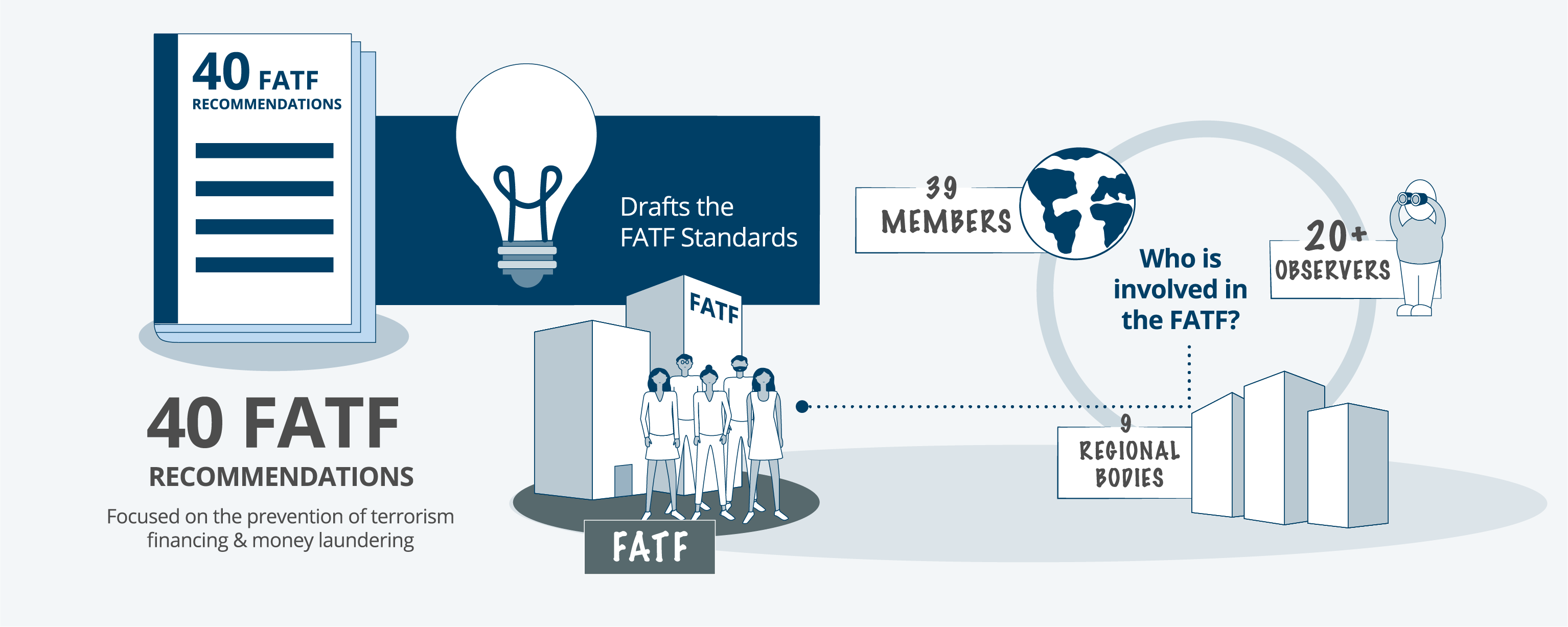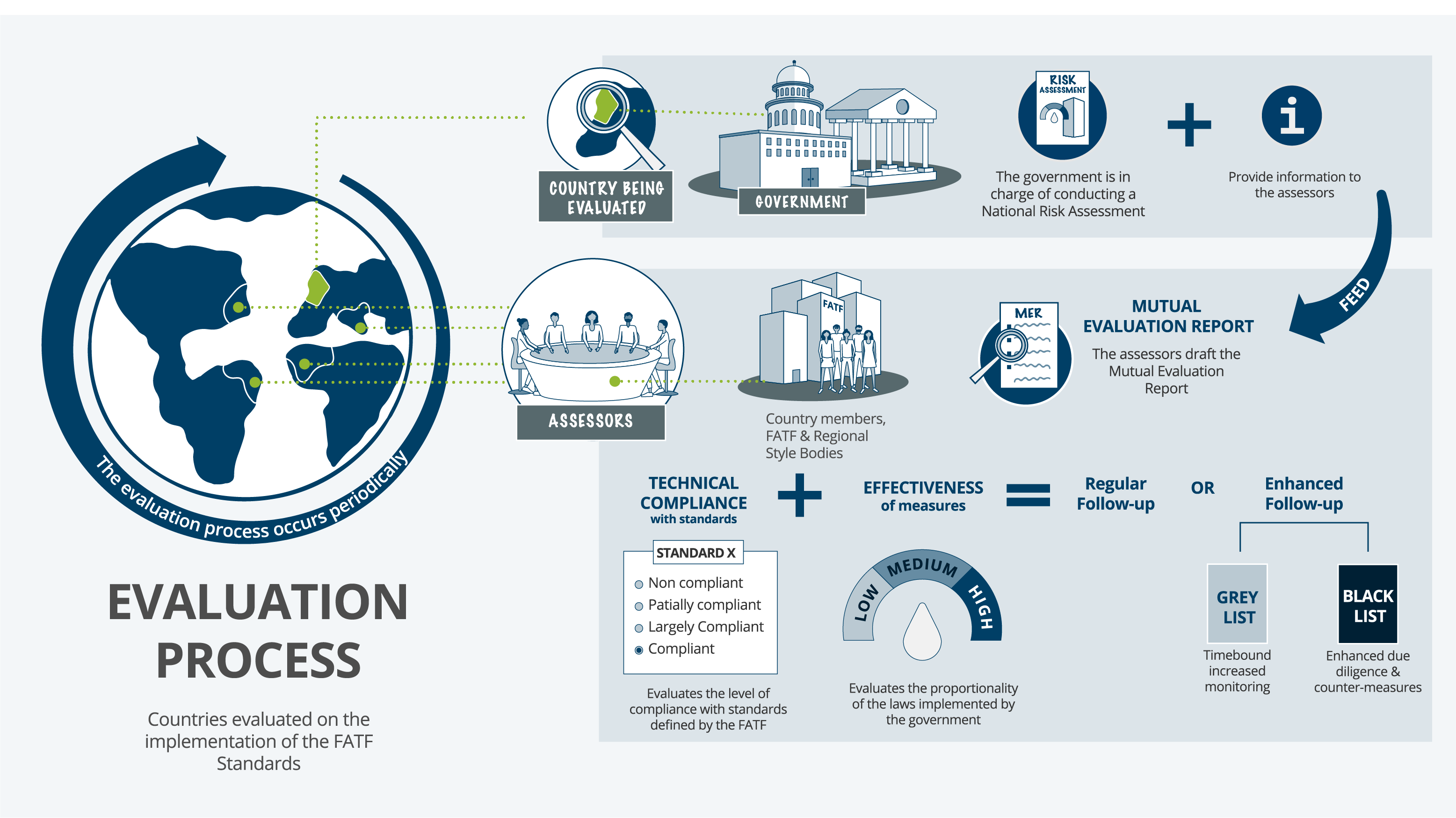The Financial Action Task Force (FATF) is the recognized global standard setter, seeking to combat money laundering, terrorism financing and other threats to the international financial system. It is both a policymaking and an enforcement body. Almost all countries across the world endorse its 40 Recommendations ('the standards'). The FATF assumes that if countries effectively implement their standards, financial systems and the broader economy will be protected from the threats of money laundering, terrorism financing, proliferation financing, etc.
Membership
The FATF has 39 members, including two regional organizations (the Gulf Cooperation Council and the European Commission). Additionally, it has 9 associate members, tasked with enforcing its mandate on a regional basis. More than 20 bodies have observer status (among them, the IMF, World Bank, OECD and various UN law-enforcement bodies).
Purpose
The FATF standards promote, globally, the adoption and effective implementation of legal, regulatory and operational measures for combating money laundering, terrorism financing and other related threats to the integrity and stability of the international financial system. This goes hand-in-hand with evaluations on how effective countries are at implementing the standards.

Mutual Evaluation process
Governments are tasked with ‘translating’ the FATF standards into national laws, rules and regulation. In a process known as a 'Mutual Evaluation', countries periodically evaluate each other on their implementation of the FATF standards. Countries are peer-evaluated on an ongoing basis to check compliance, and poor evaluations have an adverse impact on a country’s trade, investment and aid prospects.





